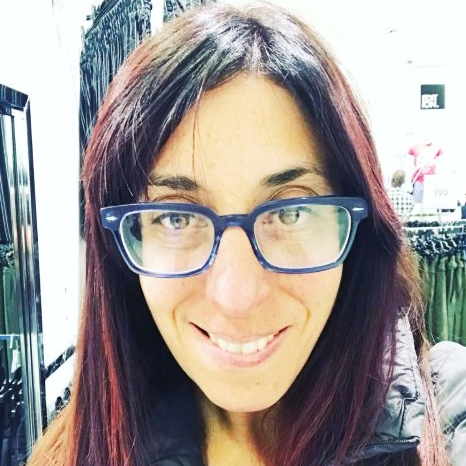
News

Do women want a women’s officer?
ADINA ROTH
The father of psychoanalysis, Sigmund Freud, asked this question in the first half of the 20th century, and years later, the women’s movements attempted to answer it.
Yet, in some ways, “what women want” remains elusive. However, if the new project of United Kingdom Chief Rabbi Ephraim Mirvis is anything to go by, what women want is a women’s officer – a newly designated liaison position for a woman on orthodox shul committees. Her role is designed to make the shul experience more “welcoming and inclusive” for women. This is the latest among a number of initiatives by Chief Rabbi Mirvis aimed at nurturing women’s leadership, learning, and general Jewish experience.
Whereas traditionally, female shul leadership was confined to a ladies guild, which oversaw the very important task of feeding the community at the shul kiddush, the women’s officer is concerned with women’s religious and spiritual experience in the space of the synagogue itself.
The women’s officer can help facilitate a woman’s need to bench gomel, the blessing recited on deliverance from danger, and can assist a women in reciting kaddish. She can also offer guidance about emergent Jewish rituals such as the Simchat Bat, celebrating the birth of a daughter, and of course the Batmitzvah. Importantly, should the need arise, she can engage in a process of making seating more inclusive while still adhering to the halachic requirements of a mechitzah (separate seating in shul).
On the one hand, I am intrigued by the designation of such a role. It reminds me of Rabba Sara Hurwitz, the first woman to be ordained under orthodox auspices in America. In describing her ordination to a South African audience, she said that because she is a woman, she can support women in shul, unlike her male counterparts. When a woman recites kaddish, she can stand with her and offer her care. If a woman is struggling in the service, she can assist.
I wonder whether this women’s officer role aims to address the oft overlooked experience of women in shul in a safe and non-confrontational manner, while avoiding more provocative territory such as women’s tefillah (prayer) groups, partnership minyanim, and the still hotly contested area of orthodox women’s ordination.
Therefore, I found it interesting that retired orthodox Rabbi, Jeffrey Cohen, penned an article in the London Jewish Chronicle where he questioned this latest initiative of women’s officer, and raised the concern that her role might be nothing more than cosmetic.
He made reference to a women’s tefillah group which started in Stanmore about 25 years ago amidst much controversy, and shared that this women’s prayer group had brought its members much closer to Judaism. He then said that perhaps the chief rabbi’s introduction of the women’s officer didn’t go far enough, suggesting that what is actually needed is the introduction of women-empowered services, where women can become active participants in prayer, and where a Batmitzvah can chant the Haftarah. Underlying Rabbi Cohen’s message seemed to be the question, “why so cautious?”, which brings me back to the question: what do women, or in this case Jewish women, want?
Many women are satisfied with the meaningful roles they find in more traditional and patriarchal settings. However, others are seeking something more. As a teacher of Batmitzvah and Barmitzvah, I meet women all the time who tell me a similar story. They say they are switched off from the prayer service, they tell me that they no longer attend shul. They also feel as if they do not understand the prayers, do not connect to the style of davening, and most importantly, feel cut off behind what are often very opaque mechitzahs.
Do we not owe it to these women to find out what they want? Often, I also find myself behind the proverbial mechitzah in shul. I look around to find women not singing or even praying, but disengaged and talking among themselves. Yet, the greatest spiritual potential of our generation lies on the other side of the mechitzah. We need to find ways to engage it.
As Rabbi Cohen alludes, in some parts of the orthodox Jewish world, we are already beyond women’s officers. There are places these days where orthodox Jewish women are “doing it for themselves” – learning the sources in Bible, Talmud, and halacha. No longer in liaison roles, they are halachic decision-makers and masters of their own spiritual destinies.
In other pockets of our communities, there is the need for gradual change. To this end, the women’s officer is a step in the right direction. It signifies that the chief rabbi of England has taken heed of women’s dissatisfaction, and is addressing their concerns, albeit in an incremental way.
But, the larger challenges faced by Jewish women are not going to be resolved by a women’s officer, no matter how efficient or attentive she is. Rather, each (Jewish) woman is responsible for addressing this fundamental question: “What do I want, long for, and strive for in my Jewish life?” The answer, different for each woman, requires that she discover and trust her own authentic voice while bringing it into dialogue with Jewish texts, Jewish history, and other Jewish men and women. The question, “What do women want?” has not yet been fully answered.
- Adina Roth is a Jewish educator who teaches Barmitzvah and Batmitzvah and adult Jewish text classes in Johannesburg. She is also a clinical psychologist in private practice.




